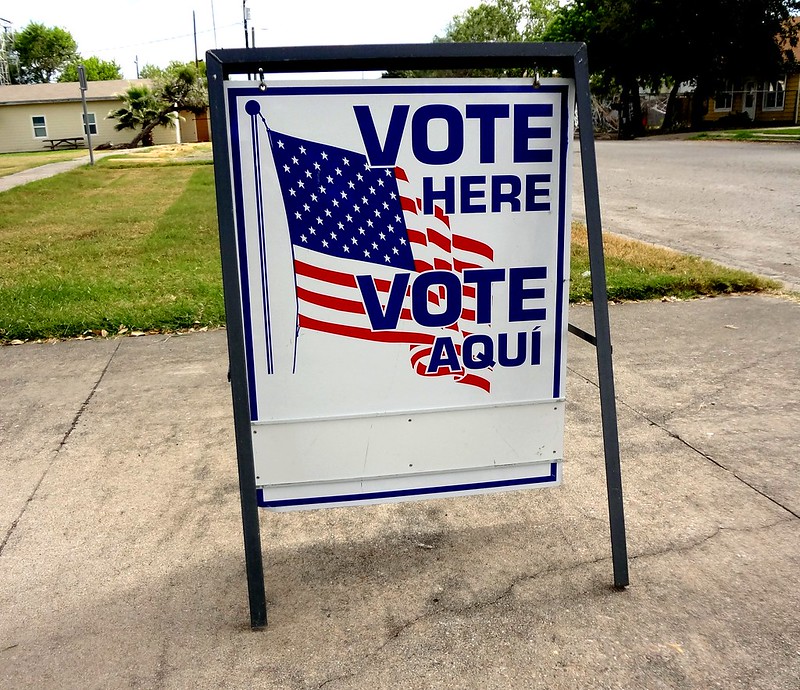Much of the conversation around voting in the 2020 primaries and general election has focused on the safety and feasibility of mail-in voting. But we must also protect the millions of Americans who vote in-person during these elections. While I have encouraged people to vote from home in the general election, millions of Americans will inevitably vote in-person. Helping these people do so as safely as possible is a pertinent public health issue, one in which health care students and professionals can play a vital role by working at polls on Election Day.
Analysis of the primary elections suggests that having an adequate number of safely-run polling locations will protect the health of citizens and communities during the general election. Research of the Wisconsin primary found that more COVID-19 cases occurred in regions that had the highest number of voters per polling location. One of the causes of increased voter turnout at a given polling location is the closure of nearby polling locations. For example, only twenty polling locations were open during the primary in Washington D.C., which normally has 143 polling locations. Likewise, there were five polling locations in Milwaukee during the Wisconsin primary instead of the usual 180.
A key reason for the closure of polling locations is that many elderly poll workers decided to protect their health rather than work. The net effect of consolidating polling locations is a decrease in overall voter turnout with an increase in voter volume at the few remaining polling locations. The latter makes adhering to social distancing policies and hygienic practices more challenging.
Can you imagine asking your parents or grandparents to work the polls, knowing they’d likely interact with hundreds of people? It’d be unconscionable.
Rather than ask elderly poll workers to risk their health on Election Day, medical professionals and students can volunteer to work at polling locations. Health care professionals and students tend to be in a lower-risk population and are also well-versed in the public health practices critical to safely conducting an election during the pandemic (e.g., hand and mask hygiene, social distancing practices, etc.). Of course, health care students and professionals are neither immune to this virus nor devoid of conditions that increase one’s risk of serious illness; it behooves everyone to comprehensively consider their risk before placing oneself in harm’s way.
Even a modest volunteer effort among students and professionals could have a sizable impact on the safety and feasibility of in-person voting on Election Day. If only five students from every medical school in the country worked at a polling location, then we would add nearly 1,000 polling workers. And if a comparable number of nursing students from every nursing school also volunteered, then the total number would be nearly 10,000.
Given that there were more than 200,000 polling locations and 600,000 poll workers in the 2018 general election, adding 10,000 poll workers might prevent hundreds or thousands of polling locations from closing and consequently help over a million people vote. Additionally, poll closures have often disproportionately affected communities of color and low-income communities, and thus preventing closures especially protects the rights of disenfranchised communities.
If you are interested in being a poll worker, then go to Power the Polls to sign up. You’ll be led through a quick and simple registration process specific to your area of residence. As the general election approaches, you will likely need to undergo mandatory training, though it varies by jurisdiction. You can learn more about the registration process and being a poll worker by visiting Power the Polls — and share it with anyone you think might be interested.
Good medical care encompasses both treating medical conditions and preventing them from arising. Indeed, as medical students, we’re often taught to encourage patients to use seatbelts or to wear bike helmets. The scope of our care has only increased during the pandemic with recommendations for prudent hand hygiene and social distancing practices.
When it comes to voting in the upcoming general election, the logic is no different: as poll workers, we can use our medical expertise and health to help our patients and communities be as safe as possible when we exercise our constitutional right to vote. Let’s rise to the occasion on Election Day to protect our patients and the integrity of our democracy.
Image credit: Vote Here Sign (CC BY 2.0) by Jay Phagan

